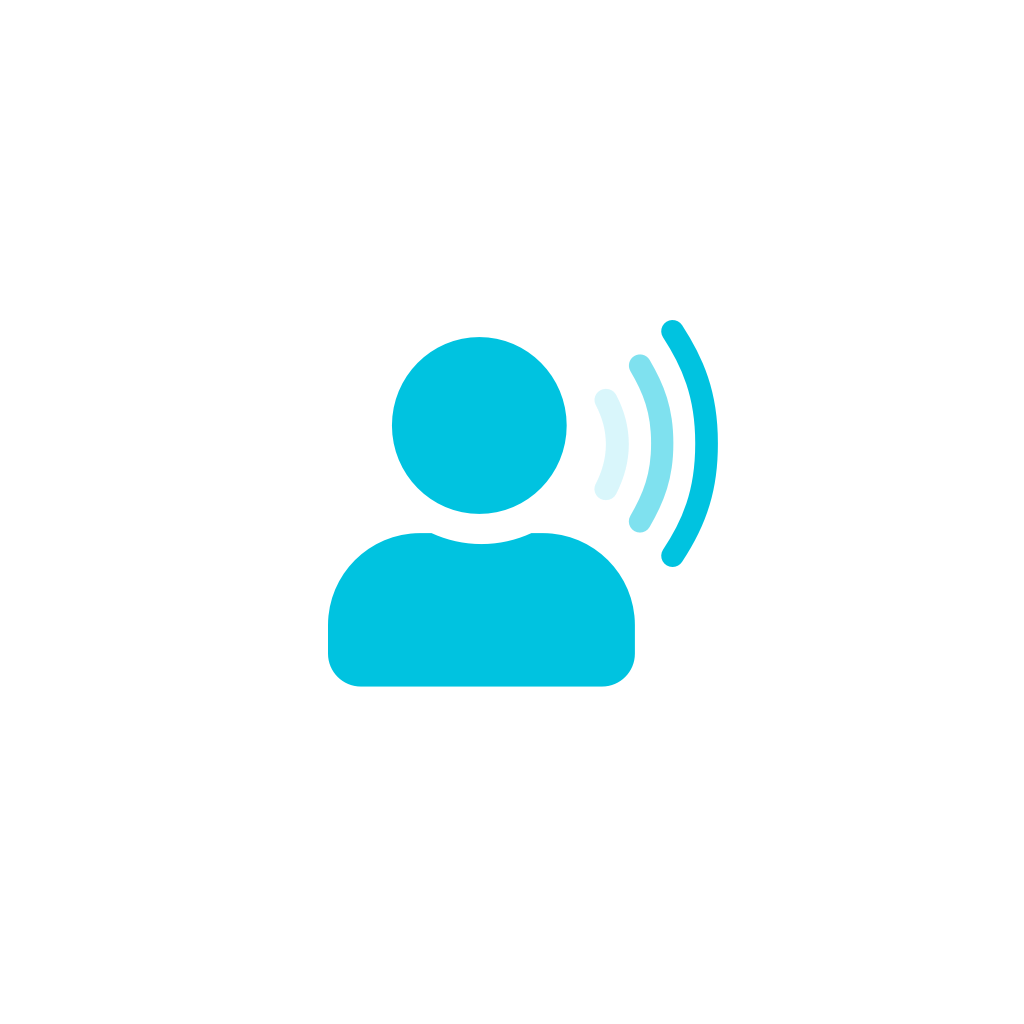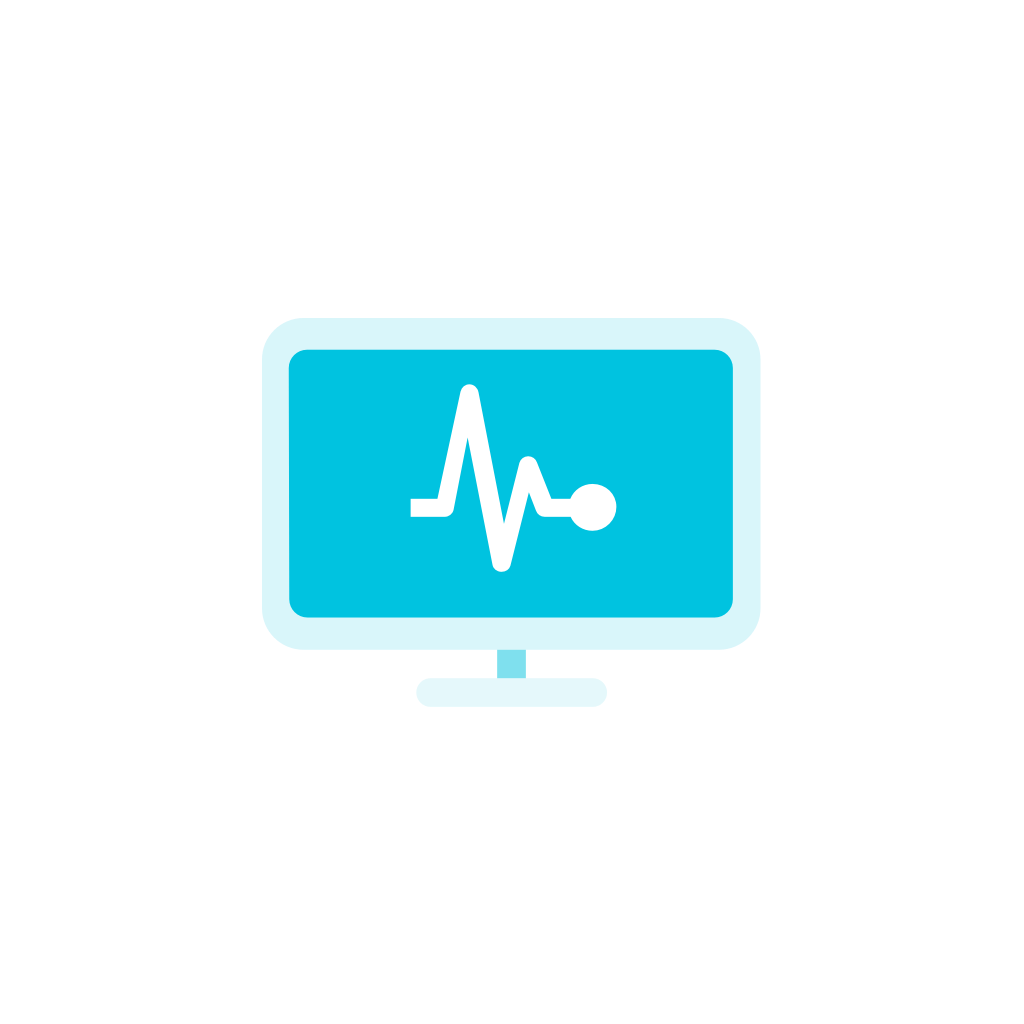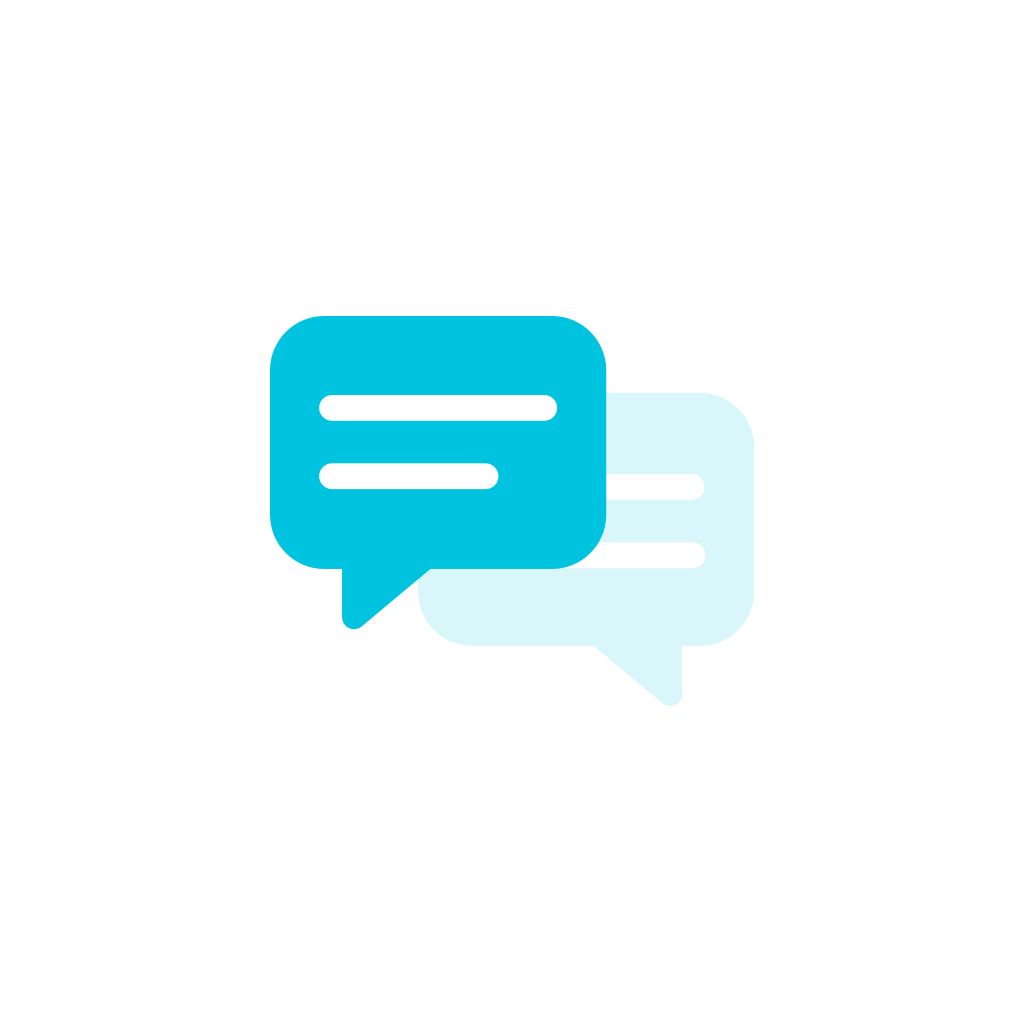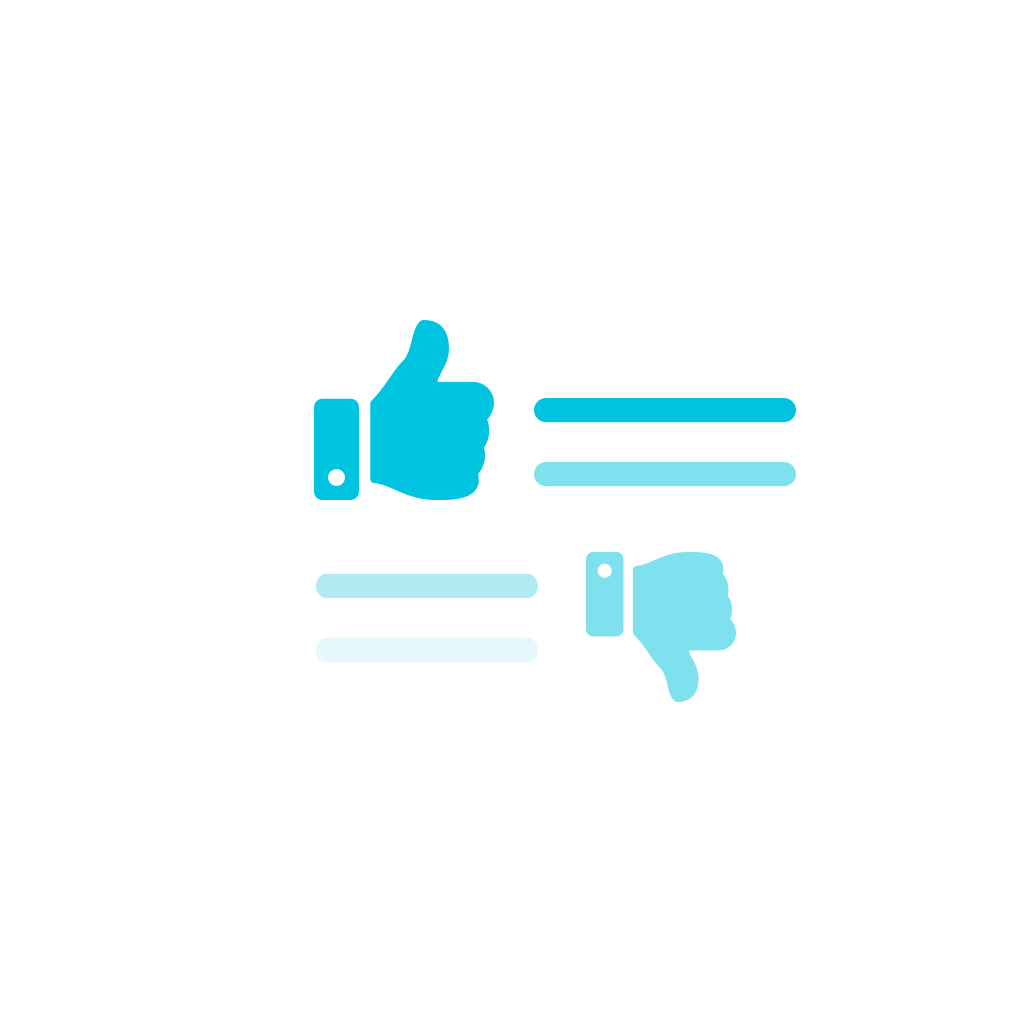It takes a certain personality type to thrive in hospitality. If you want to hire the best hospitality candidates, you need to identify applicants who possess a certain skill set, and that includes personality traits and competencies.
And when you’re volume hiring hospitality candidates, it makes the challenge that much harder for your human resources team.
So what personality traits and competencies are predictive for success in hospitality? And how do you test whether or not an applicant possesses these traits?
Whether you operate in the tourism industry, the hotel industry, or even QSRs, in this article, we’ll outline 7 core traits you should be hiring for, and explain which pre-employment assessments we recommend our clients use to screen candidates.
What’s in?
Like what you see?
Don’t miss out. Subscribe to our quarterly digest to get the latest TA and TM resources delivered right to your inbox.
What does it take to be good at hospitality?
Below, we’ll outline the importance of each personality trait and competence as well as what assessment might be used to assess for it.
1. Listening
The most important competency in hospitality is being able to listen. Not just listen to hear what is being said. But listen to understand what is being said, and what is not being said.
Hospitality workers need to be able to actively listen. They have to be able to pay close attention to what the customer is saying to hear what they want and to interpret their needs accordingly. Practicing active listening allows the employee to build rapport with the customer and establish trust.
Good hospitality staff know how to listen, not just with their ears, but with their entire body. Because it’s not only about what the guest tells them, it’s also about their non verbal communication: are they nervous, stressed, do they seem a little lost? What is the guest telling them between the lines?
Whether you’re recruiting for an upscale establishment, a quick service restaurant, a bar, or at a hotel, listening is a key skill to hire for.
There are different ways to assess an applicant’s ability to listen. We’ve found a combination of a personality questionnaire combined with a Situational Judgment Test (SJT) is the most efficient.
The personality measurement should provide you with information about the candidate’s character – whether they’re good at listening or not – some people are naturally good at listening, others aren’t.
While the SJT shows you how the applicant would deal with a range of realistic job scenarios, and whether they possess the necessary traits and competencies to handle the situation.
2. Oral communication
After listening comes communication, both written and spoken. This key characteristic is essential, especially when your guests speak a different language. Your employees need to be able to effectively and efficiently communicate in your target language, in order to serve customers well.
But communication isn’t just about how someone speaks, it’s about body language, and a person’s general demeanor too. How they handle themselves in a challenging situation; whether they have a warm and welcoming manner. Whether they look you in the eye while they talk. If they speak clearly and enunciate.
Great communication skills are a must for working in hospitality. Testing applicants for their communication skills can be done in various ways and depends on your organization’s requirements. We generally recommend clients use a personality questionnaire to get insight about each applicant’s character, and by running an SJT to see how they handle real-life job scenarios from a communication perspective.
At Harver we also offer spoken language assessments and language proficiency tests too.
3. Customer orientation
Your employees are the face of your hotel or restaurant. They’re a walking, talking business card for your organization. They’re the people who deliver your customer service, the ones who work hard to keep your guests happy. You need them to prioritize customers, no matter what.
To ensure customers’ expectations are met, hospitality staff often need to go out of their way to make guests happy. The customer’s interest has to always be number one, no matter what day or time it is. As we mentioned earlier, this kind of demanding work asks for a special breed of people. And not everyone is suited to it.
Great hospitality employees have a natural desire to please others, regardless of the time or day it is, or even what day it is. They find fulfillment in making sure their guests have everything they need. This is not a job for everyone, which is why we recommend HR teams assess customer orientation using a personality assessment.
4. Stress tolerance
The hospitality industry is a notoriously demanding industry. Employees need to have the resilience to withstand challenging customers, as well as the rigors of working long shifts, often on their feet, and at the moment, probably in an understaffed establishment.
They need to be able to maintain cool heads even in a heated situation. They have to be able to defuse a stressful situation and remain calm and composed while they do it.
Assessing for stress tolerance is done easily through situational judgment tests.
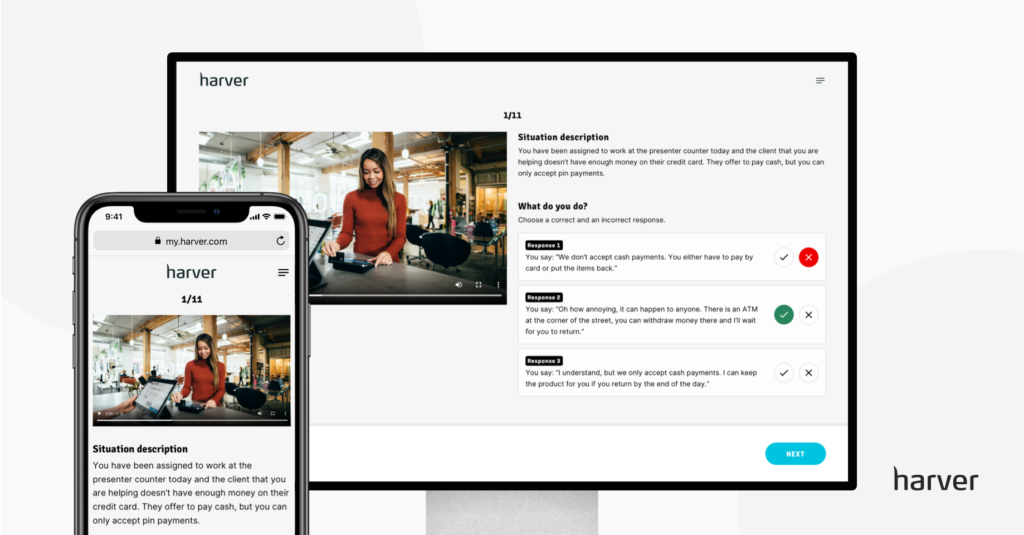
5. Quality orientation
Hospitality employees need to have high personal standards. In the hospitality sector, quality orientation is essential, because yours is a people facing industry. Everything you do is about ensuring your customers have the best experience, and you do that by keeping quality high.
As an employer in the hospitality industry, it’s your responsibility to make sure your employees know about the necessary rules and regulations which come with delivering quality food and beverage.
But once training is done, employees are on their own in following regulations. And not everyone is of the rule-abiding type. Some people are better at self regulating than others. And some people simply have an issue with following rules and regulations in general.
But in hospitality, when you’re dealing with other people’s health and safety, you need great employees who don’t just understand why they’re maintaining standards, but actively want to as well.
You need to make sure you have a good indication of a candidate’s character when it comes to applying your company’s rules.
6. Work standards
Working in hospitality can be tough. It often means long, unsociable hours, being at work when your friends and family aren’t, and literally running around all day. Add some demanding, not always easy, guests into the equation and to meet customer demand day in and day out, staff have to be extraordinary.
Hospitality applicants need to have a strong work attitude. It’s important they know exactly what they’re getting themselves into before they start. No nonsense; a real preview of what it is like to work in your hospitality business.
In order to avoid early employee attrition, and reduce turnover rates, it’s essential that applicants experience what it is like to be working in your hotel or restaurant. RJPs are a great way to showcase the role, your employer branding, while assessing them at the same time.
This is the only way for hospitality applicants to really find out what they’re getting themselves into and decide whether or not it’s right for them. If it isn’t, then it’s better for everyone involved that they self-select out of your application process now rather than a few weeks or months further down the line.
- White paper
Before you continue!
Don’t forget to grab your free copy of our white paper on the digital transformation of restaurant volume hiring. Learn about:
- The challenges currently shaping the restaurant recruitment space
- How restaurant employers can navigate the tight labor market, and the role of technology in a future-proof recruitment process
- The four building blocks of a fully digital recruitment process
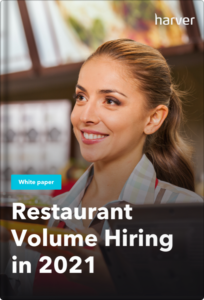
7. Multitasking
There are a lot of moving parts in a hospitality business and if the organization is understaffed, most staff won’t just be expected to do one thing at a time. They need to be able to multitask efficiently: deliver a food and beverage order, while problem solving, and all with a positive attitude.
Not only do employees need to remain calm in the middle of a busy service, but they need to be able to serve customers, answer questions, check in guests and have a smile on their face while they do it. This ability to juggle and complete multiple jobs effectively means completing work sooner than if they were to do each task individually.
However, it does mean that if employees aren’t naturally adept at doing tasks simultaneously, they can lose focus on complex tasks and the quality of work can be affected, negatively impacting your work environment and reducing customer satisfaction.
If you’d like to see how Haver can transform your hiring process,
book a demo here!
The best pre-employment assessments for hiring hospitality employees
Once you know what hospitality personality traits you’re looking for in an applicant, it’s time to assess. The good news is, all of these competencies (except for the physical element of the job) can be tested.
There are a number of pre-employment assessments hospitality hiring managers and recruiters might use to screen candidates. However, based on our experience in the hospitality industry, we suggest our clients use situational judgment tests (SJTs) in combination with personality questionnaires to assess candidate job fit and predict future job performance.
This combination works best because it doesn’t just highlight who is going to thrive in your role, it also shows which candidates will be a fit for your organization and therefore who is likely to last in the role.
You could use out-of-the-box assessments to evaluate the personality traits and competencies of your candidates, but they aren’t always helpful in the long run, because they’re too generic in their nature. They aren’t tailored to your specific organization’s hiring needs. They rely on industry benchmarks to score applicants, not custom ones for your business, meaning they aren’t predictive of future success in your role, in your company.
Plus, most off-the-shelf solutions are a one way street. They ask applicants questions, they don’t tell candidates about your company culture, or allow them to experience the role for themselves, first hand. They rely on your recruiters informing each applicant what the role is like, and given the recruiter has likely never carried the role you’re hiring for themselves, candidates are routinely left with mismanaged expectations.
Situational judgment tests (SJTs)
We recommend our clients use situational judgment tests (SJTs) because these tests are specific to your company. They showcase your organization’s culture and give candidates a glimpse into the role for themselves, while simultaneously assessing them. If applicants don’t like what they see, they can self-select out of your hiring process.

Personality questionnaires
We also recommend clients use personality questionnaires, such as our Personality Print module, which is a work-related behavioral assessment. These are a great way to evaluate applicants for the personality characteristics and competencies outlined above. Not to mention their fit with your organization and your company culture.
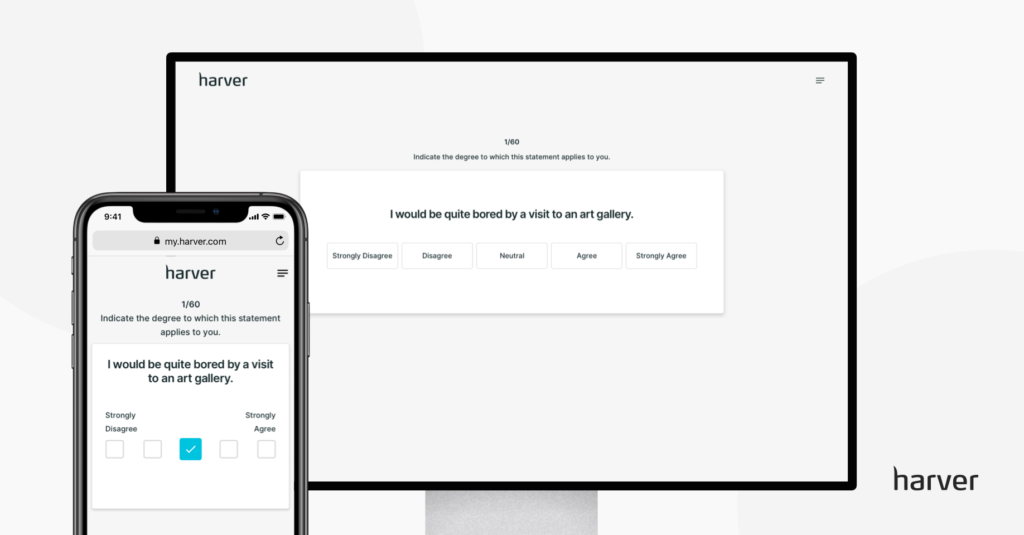
At Harver, we use the HEXACO personality inventory, the Big Five model that assesses the big five personality traits, including a recent sixth addition – honesty-humility. These six major dimensions of personality include: honesty, emotionality, extraversion, agreeableness, conscientiousness and openness to experience.
Even better, your candidates enjoy a fun assessment experience while you get scientifically validated insights.
Matching scores
While candidates navigate through your pre-employment assessments, our platform gathers data and scores their answers against your employer specific benchmarks. This score indicates to what extent an applicant fits (or doesn’t fit) your role.
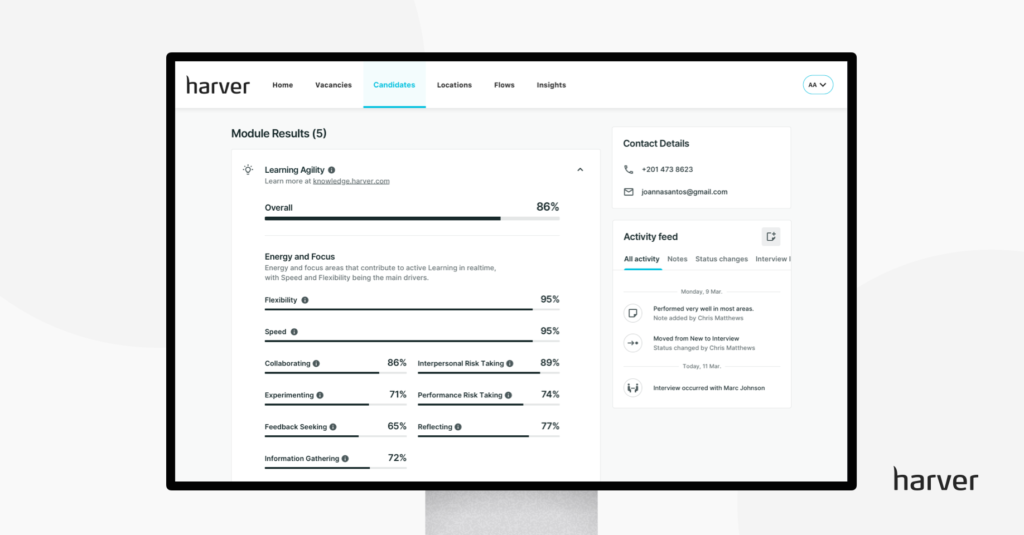
The matching score specifies – among other things – how likely it is that a candidate will be successful in the role they are applying for, but also the likelihood of them fitting into your company culture. This eliminates bias from the process, and allows TA teams to hire based on hard data.
In short: a win-win-win situation!
Next steps
Finding great hospitality professionals is hard. But if you hire the right hospitality employees, you’ll maintain your competitive edge. It will benefit the whole organization. Your revenues will go up. Your employee attrition rates will go down.
If you keep in mind these 7 personality traits and competencies when hiring, and get a little bit of help from the right HR technology, you’ll be able to find this special breed of rock stars. No matter what type of labor market you’re hiring.
Ready to transform your hiring process?


